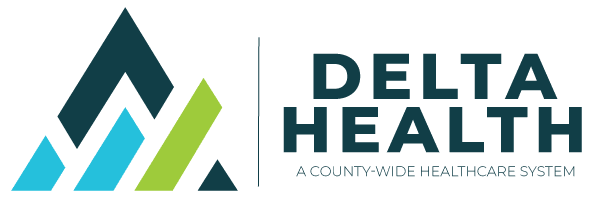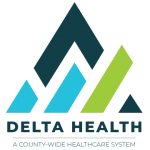Integrative Medicine Combines Elements of
Complementary, Alternative and Conventional Practice
By Helen Goldberg MD, Integrative Oncologist with Grand Mesa Oncology and Infusion Center, Delta Health
It is well known that billions of dollars are spent every year on dietary supplements and herbal remedies. It also has been shown that there are more visits by Americans to complementary practitioners than there are to primary care physicians. Almost all of these costs are out of pocket, though there has been an increase in insurance reimbursement for a number of modalities such as acupuncture and chiropractors.
It is essential to differentiate between alternative and integrative medicine.
Therapies that are typically excluded by conventional medicine and are used by patients in place of conventional medicine are known as alternative medicine. Some of them may be scientifically validated. Complementary medicine refers to the use of CAM (Complementary and alternative medicines) together with conventional medicine. Integrative medicine combines treatments from CAM and conventional medicine for which there is evidence of safety and effectiveness.
Dr. Andrew Weil, one of the leading proponents of integrative medicine, provides the following definition, ” Integrative medicine is a healing-oriented medicine that takes account of the whole person, including all aspects of lifestyle. It emphasizes the therapeutic relationship between the practitioner and the patient, is informed by evidence and makes use of all appropriate therapies.” (*from University of Arizona Center for Integrative Medicine)
There are strong concerns over the efficacy and safety of these modalities. In 1992, the National Institutes of Health, led by the U.S. Congress, established the Office of Unconventional Medical Practices. In 1998, it became the National Center for Complementary and Alternative Medicine (NCCAM). The role was to evaluate and establish the evidence or lack of evidence that supported the use of these modalities.
NCCAM has classified CAM therapies into five separate groups, though there is significant overlap with certain modalities applicable to several categories:
1. Whole medical systems: These include aspects of the other groups. Examples include Traditional oriental and Ayurvedic medicine, homeopathy and naturopathy.
2. Mind-body medicine: This is based on the premise that the mind can affect bodily functions and symptoms. Examples are meditation, yoga,
hypnosis, tai chi and acupuncture.
3. Biology-based practices: Examples include the use of botanicals, foods and dietary supplements.
4. Manipulative and body-based practices: Examples include massage, osteopathic and chiropractic manipulation
5. Energy Medicine: This is a CAM modality whose practitioners purport to affect the flow of energy fields. Free flow of energy (or “life force”) is considered to support health. Disturbances in the energy flow are felt to impair bodily functions and lead to illness. This is one of the more perplexing areas for conventional practitioners to accept. Examples include:
- Reiki is a modality based on the belief that there is a universal energy source, and a person can be trained to access this force to support healing. The practitioner places their hands lightly on or just above the person receiving the treatment.
- Qigong and tai chi consist of deep relaxation techniques, visualizations, breathing exercises and gentle fluid movements to promote stress reduction and improvement in a number of health conditions. There are a number of studies supporting the use of these modalities, in particular in cardiology and oncology.
History
It was noted that medicinal herbs were found with the prehistoric “ice man” that was found in the Italian Alps. Both ayurveda and traditional Chinese medicine date back before 5000 B.C.
Integrative Medicine and Medical Education
Inclusion of integrative medicine in medical school and residency programs is rapidly growing. There are several academic institutes that have separate integrative medicine tracts in family practice and internal medicine.
The Consortium of Academic Health Center for Integrative Medicine consists of 50 academic medical centers and affiliate institutions. Their mission is to advance the practices and principals of integrative healthcare within academic institutions. This includes the development of integrative healthcare curricula and supporting rigorous scientific research.
Integrative Medicine Practices
In Colorado, we are fortunate to have a number of highly trained integrative practitioners. These include naturopaths, osteopaths who specialize in manual manipulation therapy, acupuncturists/Oriental Medicine, chiropractors, massage therapists and cranial-sacral practitioners. I very often refer patients for these modalities. By taking a multidisciplinary approach, a patient’s care team is expanded to include the person as a whole.
I see my role as partnering with patients to create an integrative treatment plan that makes use of dietary strategies, selected CAM therapies and lifestyle changes during and after cancer treatment. I advise patients about the potential risks and benefits of CAM cancer treatments. Patients are given strategies to reduce side effects of treatment and possibly increase the efficacy. In general, the patients who are referred to me are motivated to be proactive in their care.
My preference is for patients to incorporate complementary approaches with traditional therapy.
There are a number of hurdles in practicing integrative medicine. In my current practice, I spend 60-90 minutes with each patient and spend an average of 45 minutes preparing for a consultation. Current reimbursement does not favor this model. Optimistically, in the future, there will be value placed by both the payers and the patients to support integrative medicine. My practice is located at Grand Mesa Oncology at Delta Health. We are working on expanding our integrative oncology program.
“The doctor of the future will give no medicine, but will interest her or his patients in the care of the human frame, in a proper diet, and in the cause and prevention of disease.” – Thomas Edison
Helen Goldberg, MD, is a medical oncologist who has completed a two-year fellowship at the University of Arizona Center for Integrative Medicine under Dr. Andrew Weil. She completed her internal medicine and medical oncology training at Duke University. She is currently enrolled in Foundations in Herbal Medicine under Dr. Tieraona Low Dog.
Dr. Goldberg is a member of:
American Society of Clinical Oncology
Society of Integrative Oncology
Oncology Association of Naturopathic Physicians
American Botanical Council


